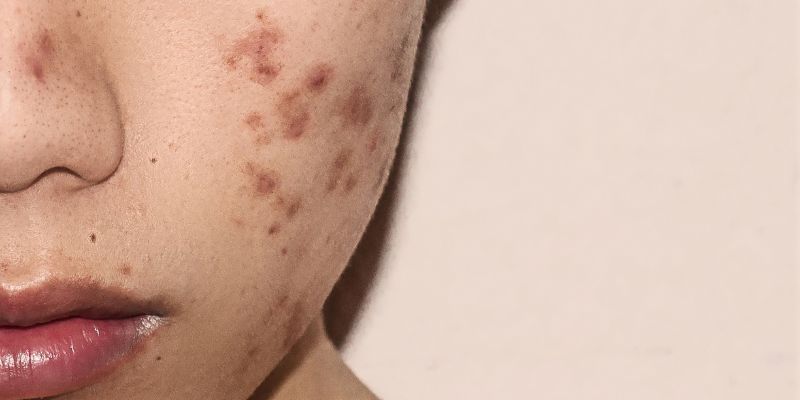Although often less severe than smallpox, Monkeypox is a dangerous virus that affects a tiny percentage of the population. Monkeypox is an infection caused by the poxvirus. The disease has been recorded from all around the globe, including the United States, but is most prevalent in central and west Africa. Monkeypox symptoms, such as fever, headache, muscular pains, backache, enlarged lymph nodes, and a rash, often develop 7 to 14 days after infection. Red lumps appear first, smaller blisters filled with fluid, and scabs as the rash progresses. Transmission of Monkeypox from animals to humans occurs via direct contact with infectious fluids or contaminated things. Monkeypox has no cure or vaccination to prevent it. Therefore therapy is just palliative.
What Is Monkeypox?
Rare and contagious, Monkeypox is a milder form of the human illness, smallpox. Monkeypox virus, like other poxviruses, is responsible for this disease. The disease has been recorded from all around the globe, including the United States, but is most prevalent in central and west Africa. Monkeypox symptoms, such as fever, headache, muscular pains, backache, enlarged lymph nodes, and a rash, often develop 7 to 14 days after infection. Red lumps appear first, smaller blisters filled with fluid, and scabs as the rash progresses. Transmission of Monkeypox from animals to humans occurs via direct contact with infectious fluids or contaminated things. Monkeypox has no cure or vaccination to prevent it. Therefore therapy is just palliative. Monkeypox usually clears up on its own after a few weeks, but in certain cases, particularly those with compromised immune systems, it may cause serious sickness or even death.
Symptoms Of Monkeypox:

It usually takes between 7 and 14 days for symptoms of Monkeypox to manifest the following infection. Some of the most typical signs are:
- Fever\sHeadache
- My muscles hurt.
- Backache
- lymph nodes that are swollen
- Rash
- Typically, the rash will start on the face and then move elsewhere. Red lumps appear first, smaller blisters filled with fluid, and scabs as the rash progresses.
Monkeypox may quickly progress to a life-threatening infection in persons with compromised immune systems. Some of the signs of serious disease are:
- Lack of air, difficulty breathing
- Pneumonia
- Chronic skin infections
- An issue with bleeding
Factors That Contribute To The Spread Of Monkeypox
The contagious virus that causes Monkeypox is transferred by direct contact with contaminated saliva, mucus, or blood. The virus may also be transmitted by sharing infected personal items, such as towels and sheets.
Monkeypox may be transmitted to humans by direct contact with diseased animal fluids or skin. This is especially prevalent in rural settings, where humans often come into proximity with various wild species, including rats and primates.
Risk Factors For Monkeypox:
To a greater extent, a person's chance of getting Monkeypox depends on various variables, including:
- Destinations or lifestyles that put you at risk for contracting Monkeypox
- A risk factor for contracting Monkeypox is proximity to an infected individual.
- being immunocompromised because of disease or treatment (e.g., chemotherapy, radiation)
- Working as a veterinarian or animal handler, two occupations that place people near sick animals.
Prevention Of Monkeypox:
To lessen the likelihood of catching Monkeypox, you may do things like:
- They were preventing smallpox by receiving a vaccination. There is currently no vaccination available to prevent Monkeypox. However, studies have suggested that the smallpox vaccine can provide some protection.
- Keeping your distance from anybody who has Monkeypox or has recently visited an area where the virus is common is the best way to protect yourself.
- Repeated hand washing, particularly after handling potentially infectious materials or following contact with human fluids.
- Stay away from wild animals, especially in places where Monkeypox is rampant.
Treatment Of Monkeypox:

Unfortunately, neither vaccination nor a particular therapy exists for Monkeypox. Treatment consists of providing comforts, such as painkillers, drinks, and oxygen. Those who have Monkeypox usually make a complete recovery within a few weeks. However, those with compromised immune systems are more susceptible to developing life-threatening illnesses.
Conclusion
The virus that causes Monkeypox is uncommon but may be quite dangerous. It is mostly found in central and west Africa. Transmission from animals to humans occurs via contact with infectious fluids or contaminated things. Although no vaccination or treatment is available for Monkeypox, most persons who get the virus make a complete recovery within a few weeks. Avoiding close contact with sick people or animals, having the smallpox vaccine, and washing your hands often may all help lower your chance of catching Monkeypox.




